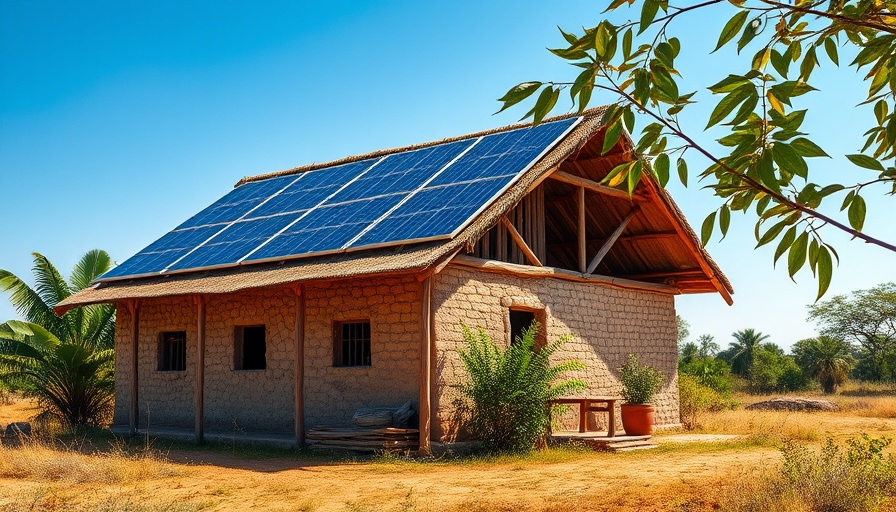
Understanding the Digital Landscape in Africa
The challenges of accessing mobile internet in Africa are crucial to understanding the continent's economic and social development. With over 1.3 billion people, various countries in Africa struggle with high connectivity costs that stifle their digital innovation potential. Despite UN recommendations advocating for a mobile internet price floor at 2% of the average monthly income, only fifteen African nations have complied. This raises critical questions: What systematic changes are necessary to enable equitable access to the digital landscape?
The Case for a Price Floor: A Key to Inclusivity
With high mobile internet prices prevalent, many African communities remain disconnected, particularly in rural areas. The proposed price floor aims to tackle this inequity by lowering costs across the board—promoting digital transformation that includes e-commerce, digital banking, and crucial educational resources. Nonetheless, the slow uptake of these recommendations reveals a broader issue: how do we drive policy change in a fragmented regulatory environment?
Consequences of High Connectivity Costs
The implications of high pricing for internet access extend far beyond mere inconvenience. Limited connectivity restricts opportunities for digital financial services and online education, deepening the digital divide. Vulnerable populations often bear the brunt of these economic repercussions, unable to harness the productivity that comes with being connected. Could innovative tech solutions like AI, blockchain, or fintech be leveraged to address these disparities and lower costs?
Regional Disparities: A Closer Look at Connectivity
There exists stark contrast in the connectivity landscape between various African countries. For instance, nations in East and Southern Africa have made strides, yet others lag behind, sparking debates over the efficacy of local regulations versus the need for harmonized policies across borders. The importance of unifying the African digital market cannot be overstated—how can international collaborations support this goal?
Future Predictions: Navigating the Path Ahead
As we look to the future, the landscape of digital inclusion in Africa is filled with both challenges and potential. Technologies such as 5G and IoT, alongside burgeoning sectors like healthtech and agritech, offer avenues for elevated user engagement and connectivity. However, the effective implementation of these technologies relies on addressing foundational issues, such as critical tech investments and regulatory adjustments. What strategies can be deployed to bridge the existing gaps?
Incorporating Diverse Perspectives: A Holistic Approach
In discussing mobile broadband challenges in Africa, it’s essential to synthesize diverse views from within and outside the continent. Stakeholders—including policymakers, business leaders, and technologists—must all contribute to a discourse that prioritizes digital inclusion as a priority for sustainable growth. Could multidisciplinary approaches lead to transformative practices in tech adoption and access?
Actionable Insights: Steps Towards Digital Inclusion
To fully harness the power of technology and ensure digital inclusion, stakeholders can consider actionable strategies such as establishing tech hubs and incubators that boost local entrepreneurship. Encouraging digital literacy through initiatives focused on coding and remote work can empower citizens with the skills necessary to thrive in a digital world. How can these grassroots movements pave the way for greater tech adoption?
These insights emphasize the urgency for action. Addressing the lack of connectivity in Africa necessitates a coordinated effort from policymakers, business leaders, and the tech community to create a more inclusive digital economy.
Call to Action: Join the Conversation on Digital Inclusion
Are you ready to challenge the status quo? Share your thoughts on how we can work together to ensure that all African communities benefit from digital advancements. Whether through technology investments, policy advocacy, or community engagement, your voice counts in shaping a digitally inclusive Africa.
 Add Row
Add Row  Add
Add 




Write A Comment